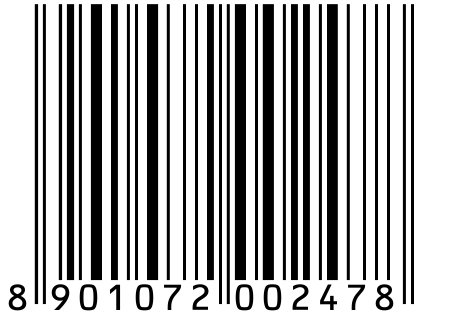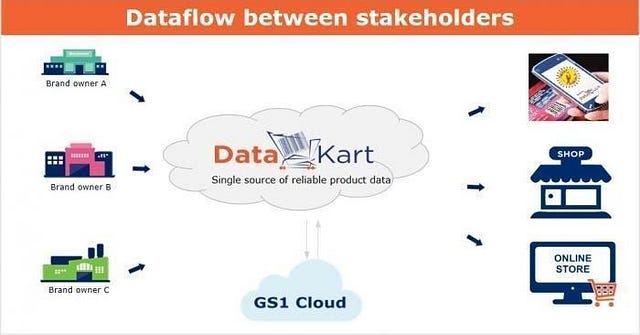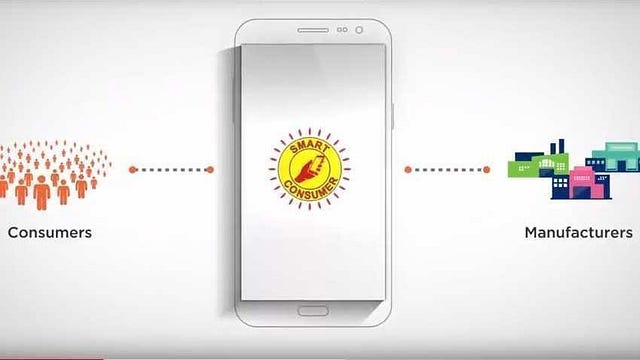India is expected to be a $5 trillion economy by 2025, and SMEs are making the major contribution towards this milestone. Thousands of SMEs manufacture consumer products which are sold through retail chains and online marketplaces. One of the essential requirements for SME manufacturers/brand owners to sell their products through retail chains and e-marketplaces is to label them with unique product codes, also known as GTINs (EAN/UPC).

Whether you are introducing your product in the market or taking your company to the next level, GTINs (EAN/UPC) provide a unique identity to your products that helps you in listing products with buyers and achieving supply chain visibility and efficiency.
Why should you label your products with GTINs(EAN/UPC)?
Over 2 million brand owners use GTINs across the globe, making it a de-facto standard for the retail industry worldwide.
Some of the benefits of GTINs (EAN/UPC) for your business are listed below.
1. Higher search ranking of your products on Google
GTINs (EAN/UPC), when used in the product webpage, show 40% improvement in search results, resulting in higher visibility among consumers.
2. Easy barcode management with an online portal

GS1’s DataKart enables brand owners to easily manage their GTINs (barcode numbers) and product information against each GTIN. It also enables the generation of barcode images, which can be readily incorporated on product packaging.
3. Reach to consumers through the Smart Consumer app
Labelling your products with GTIN (EAN/UPC) helps you connect with your customers through the Smart Consumer app directly by sharing relevant, accurate and reliable information with them.

By Oct 2020, the app saw over 22.7 lakh consumer scans.
4. Makes your product images sales-ready with ClickIt app
With e-commerce becoming the norm in retailing, product images have gained more significance than ever before, putting pressure on brand owners to provide better quality product images.
GS1 India’s ClickIt mobile app, that comes complimentary with GTIN (barcode number) subscription, enables you to capture product images through your mobile phone.
5. Faster listing of products with retail chains and e-marketplaces

GTINs (EAN/UPC) on products enable you to list them faster with retail chains and online shopping portals. This includes Amazon, eBay, Flipkart, BigBasket, Reliance Retail, Future Retail, Walmart, etc., as they use GTINs to manage their vast product catalogues.
6. Share notification on product changes and introductions
Using GS1 India’s DataKart, you can send notifications on each product change and introduction of New Product Introduction in just a few clicks. These notifications will be made available in retailer’s login in their native file formats, from where they can be incorporated into their item masters easily.
Read more about GS1 India’s DataKart
Some other major business benefits of labelling GS1 Barcodes are:
- Fast and accurate data capture at every point in the supply chain eliminating human error with 100% accuracy
- Easy track and trace to prevent counterfeiting and product recalls
- Facilitate expiry management and freshness of products
To reap the above benefits for your business, subscribe for GTIN (EAN/UPC) at https://support.gs1india.org/barcode_registration_1.
Where to get GTINs for your products
GS1 is a global standards organisation that maintains the uniqueness of product codes (GTINs) across the globe. An affiliate of GS1 Global, GS1 India is set up the Ministry of Commerce and Industry, Government of India, along with apex trade organisations and Bureau of Indian Standards. It provides 13-digit unique product codes (GTINs/EAN) to brand owners in India.
It is important to note that GS1 India is the only authorized body in India to issue GS1 barcode numbers to companies in India.
Register at https://support.gs1india.org/barcode_registration_1.
Comments
Post a Comment